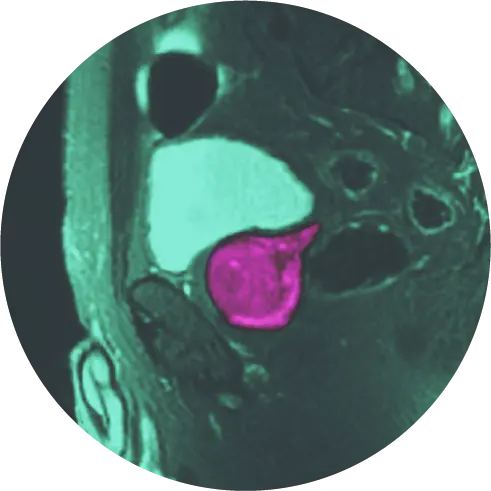November is National Hospice and Palliative Care Month. Both forms of patient care play essential roles in providing comfort and quality of life for people with serious illnesses. However, many people do not fully understand what these two forms of care entail, including how they compare and differ.
With this article, we hope to answer the most common questions people have about hospice and palliative care and, at the same time, honor the outstanding professionals who provide these services.
Palliative Care vs. Hospice
Though many people use the terms interchangeably, there are key differences between palliative care and hospice.
First, let’s look at how the two forms of compassionate care are similar. They both focus on providing pain relief and symptom management of a serious illness. Both also address the emotional, social, and spiritual needs of the patient and their family members.
Where the two forms of care differ is in the patient’s prognosis. Palliative care is given to people with various illnesses, including Alzheimer’s disease and COVID, and can be curative in its intent or not. This means that some patients receiving palliative care are pursuing treatments for their illness, while others are not.
On the other hand, hospice is designed for people with a life expectancy of six months or less. These patients no longer have treatment options or have chosen to stop treatments because they feel the side effects are worse than the benefits.
One way to look at the two terms is to consider hospice as palliative care for people who are in the final stages of life.1
When to Choose Palliative Care
Now let’s delve further into the role of palliative care and when it might be a good option for you or someone you love.
Palliative care may be the right choice for someone who is at any stage of a serious illness. The illnesses might include cancer, Alzheimer’s disease, amyotrophic lateral sclerosis (ALS), or heart, lung, and kidney disease.
Palliative care can be administered along with curative treatments for the illness. It focuses on providing relief from pain and other symptoms of the disease with the overall goal of improving quality of life. A palliative care team that includes doctors, nurses, and other specialists will perform the following:
- Help relieve pain and other physical symptoms
- Help you understand your illness and diagnosis
- Coordinate with other members of your medical team
- Communicate with your family and help support family members
- Clarify your treatment options
- Support your ability to cope with your diagnosis
- Assist you with making medical decisions and maintaining agency in your care2
You may receive palliative care both in the hospital and at home. Most insurance plans cover all or part of this care, and your care team can discuss financing and payment options with you.
Although palliative care can be beneficial at any stage of an illness, doctors recommend you consider it in the early stages.
For example, research shows that integrating palliative care into a patient’s treatment soon after a diagnosis of advanced cancer can improve their quality of life and may even extend life expectancy. The American Society of Clinical Oncology recommends that all advanced cancer patients receive palliative care.3
When to Choose Hospice
When curative treatments are no longer an option, it may be time to consider hospice. Hospice care can help patients manage their symptoms and spend their remaining time with as much comfort and alertness as possible.
Hospice professionals coordinate the medical treatment of physical pain, breathing difficulty, nausea, constipation, insomnia, anxiety, and mental confusion. But what is often even more important is how these caring individuals provide emotional and spiritual support for both the patient and their loved ones.4
Some hospices also offer complementary treatments such as meditation, healing touch, and aroma, music, and pet therapies. Non-denominational hospice chaplains provide the opportunity for spiritual discussion if desired.
Hospice programs also provide bereavement counseling for loved ones. The Medicare hospice benefit covers up to 13 months of this type of counseling, which helps families navigate a tough time.
Hospice care costs are covered by Medicare, Medicaid, and private insurance plans. According to statista.com, 1.61 million people received hospice care in the U.S. in 2020.5
This meaningful care is administered in homes, home-like residences, assisted living facilities, veterans’ facilities, and hospitals. It can be hard to decide to enter hospice, and sometimes people don’t take advantage of its full benefits.
Honoring the Heroes
November is the traditional time for giving thanks. Since it is National Hospice and Palliative Care Month, we also have the opportunity to honor the thousands of palliative care and hospice care workers who make a huge difference in the lives of the patients and families they serve.
These skilled professionals and trained volunteers provide medical, emotional, nutritional, and spiritual care to people with serious illnesses and their families.
It takes a special kind of individual to do this work. These doctors, nurses, social workers, therapists, and other specialists are rich in compassion, patience, and endurance. Whether you or a loved one has benefitted from this extraordinary work, we hope you take the time to thank a caregiver for all they do for our families and communities.
References
1 https://www.nia.nih.gov/health/what-are-palliative-care-and-hospice-care
2 https://getpalliativecare.org/whatis/faq/
3 https://www.cancer.gov/about-cancer/advanced-cancer/care-choices/palliative-care-fact-sheet#r2
4 https://www.health.harvard.edu/staying-healthy/choosing-hospice
5 https://www.statista.com/statistics/339851/number-of-hospice-patients-in-the-us-per-year/




